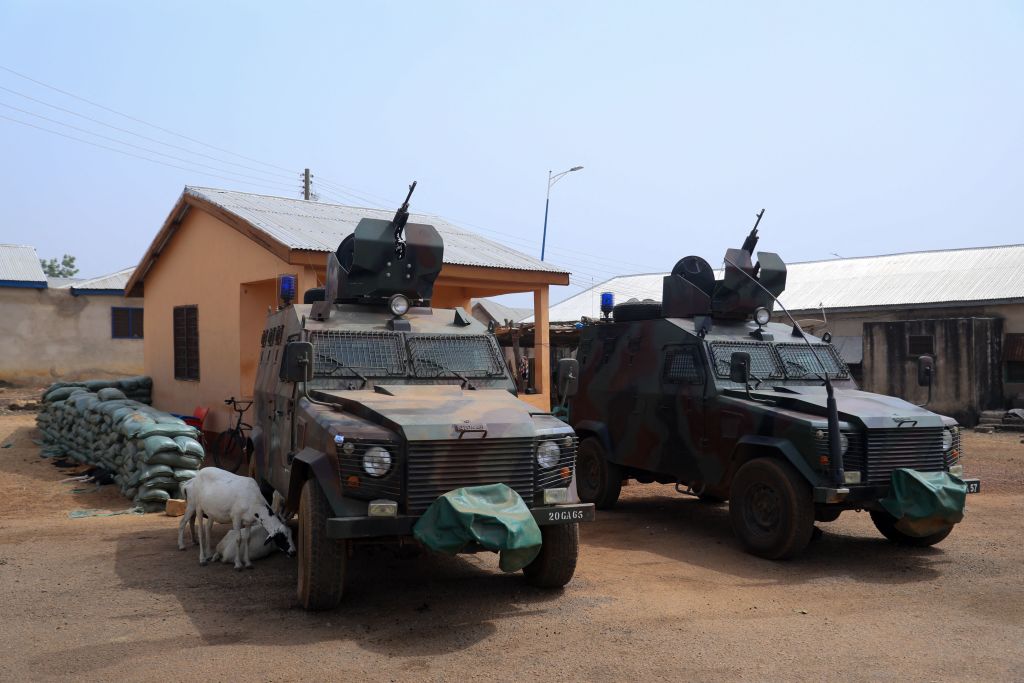ADF STAFF
The United States government in late March offered $100 million to help Benin, Côte d’Ivoire, Ghana, Guinea and Togo battle the spread of terrorism over the next 10 years.
U.S. Vice President Kamala Harris made the announcement while visiting Ghana. The pledge was appreciated by Ghanaian President Nana Akufo-Addo, who called terrorism a “poison.”
“We’re spending a lot of sleepless nights trying to make sure we’re protected here,” Akufo-Addo said in an Associated Press report.
Akufo-Addo added that fighting has increased in northern Ghana, near the Burkina Faso border, and raised concerns that Russian Wagner Group mercenaries could expand their role in the region.
“It raises the very real possibility that once again our continent is going to become the playground for a great power conflict,” Akufo-Addo said.
The funds are expected to help implement a 10-year strategy to prevent conflict and promote stability. The plan was developed through extensive consultations with African stakeholders. The main goals are to build the capacity of security forces to confront terrorist threats and address porous borders that Sahel-based extremists exploit.
“The challenges facing these five countries are exacerbated — and indeed cannot be separated from — violence and instability within the wider [Sahel] region,” the United States Institute of Peace said in a December 2022 report on advancing stability in coastal West Africa.
The Sahel crisis claimed more than 6,500 lives and displaced about 1 million people in 2020. In February 2022, the number of people internally displaced since 2011 was 2.7 million, the institute reported.
Security challenges vary by country.
Northern Côte d’Ivoire has seen an increase in extremist attacks from groups based in neighboring Mali and Burkina Faso. At least 18 members of Ivoirian security forces have been killed in extremist attacks over the past three years.
“These attacks need to be taken seriously,” Ella Jeannine Abatan, senior researcher for the West African region at the Institute for Security Studies, told Canadian newspaper The Globe and Mail. “They show the capacity of violent extremists to cross borders into coastal states, taking advantage of porous borders and other vulnerabilities.”
As in other areas, extremist violence organizations in northern Ghana are increasingly recruiting younger people into their ranks.
In February, a suspected terrorist group attempted to blow up a bridge in Bawku, near the Burkina Faso border.
“The threat of terrorism hanging around Ghana through the corridors of Bawku is real,” Ghanaian Defence Minister Dominic Nitiwul said in a report by Agence France-Press. “So, the security agencies are working within Bawku and its precincts with the mindset that if we do not stop what is happening in Bawku now, we risk the situation where Ghana can be thrown under terrorist attacks.”
Many Guineans are seeking a return to civilian rule after a September 2021 military coup. In October 2022, Guinea’s ruling junta agreed to restore civilian rule in two years. Even after the agreement was reached, security forces were killing civilians during anti-junta protests, France 24 reported.
Last year, Togo declared a state of emergency due to extremist violence, mostly in its lower-income rural and northern regions, and Benin has experienced increasing attacks by extremist groups from the Sahel along its border areas.
Since 2021, the U.S. government has invested more than $6.5 billion to support peace, security, democracy and human rights on the continent.
The funds have helped strengthen military capabilities and peacekeeping efforts; increase African institutional capacity; empower civil society; and support democratic transitions and institutions, among other objectives.

